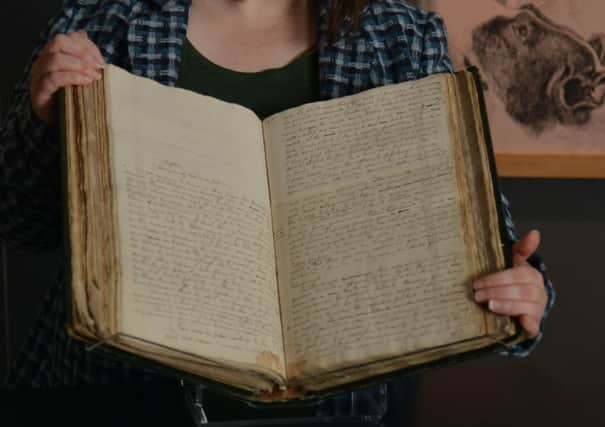The day Walter Scott admitted to Waverley novel


Walter Scott had never revealed he was the man behind the ground-breaking Waverley novels, despite rumours which swirled around him.
But when he rose to speak at a dinner in the Assembly Rooms in Edinburgh, the 300-strong throng were already cheering him to the rafters.
Advertisement
Hide AdAlmost two centuries later, the surprise “outing” of Walter Scott and the dramatic account of the occasion in The Scotsman newspaper is being revisited.
Our report, from 24 February 1827, is central to an exhibition at the National Library of Scotland – running until 16 November – alongside the manuscript of the frist Waverley novel, which Scott published anonymously exactly 200 years ago.
The Edinburgh-born writer’s work, set against the backdrop of the 1745 Jacobite Rising, is widely credited as being the first historical novel and was a publishing phenomenon, with 1,000 copies sold in the space of two days and a fourth edition appearing within just four months.
But Scott, an established poet, had published it anonymously, amid uncertainty over how it would be received and, despite its success, later decided follow-ups should simply say they were by “the author of Waverley”.
Rare books, letters and manuscripts held in the library’s Scott archive have been brought together for the displays.
Experts at the library, which holds one of the world’s leading Scott collections, hope the exhibition will revive interest in the writer, who is often over-looked in his home city, despite his most famous book providing the name for the capital’s main railway station and the author being immortalised with the famous towering monument in Princes Street Gardens.
Advertisement
Hide AdScott started writing Waverley in 1805, but discarded his manuscript after hearing the “unfavourable opinion” of a “critical friend”. He came across it again while looking for fishing lines and flies at at his then home of Abbotsford, in the Borders.
It eventually appeared in July 1814, thanks to the help of two close friends, James Ballantyne, a printer, and Archibald Constable, a publisher.
Advertisement
Hide AdThe exhibition reveals how Scott had also shared his secret with a handful of his close friends, including the English scholar and traveller John Morritt, who sent him a copy of Waverley two days after it was published, describing it as “a small anonymous sort of novel”, referring to the stir it was already causing in his home city.
Although Scott would later claim “the joke had lasted long enough and I was tired of it”, he had repeatedly rejected overtures from his friends to reveal he was behind the novels.
But his cover was finally blown at the Edinburgh Theatrical Fund dinner at the Assembly Rooms after he was asked about the persistent rumours by a fellow guest, the judge Lord Meadowbank, and carelessly remarked that the secret was too well known by then.
The Scotsman’s account recalls how there was “loud and continued cheering” when Scott was identified by Lord Meadowbank as “The Great Unknown” and “minstrel of his country”.
Scott admitted he did not expect “to have revealed before three hundred gentlemen a secret which had been remarkably well kept for a great number of years”.
Helen Vincent, head of rare books and music at NLS, said of Waverley: “It was a huge success at the time and sold many more copies than Pride and Prejudice.
“The comparison I would make would be with JK Rowling publishing her detective fiction anonymously.”